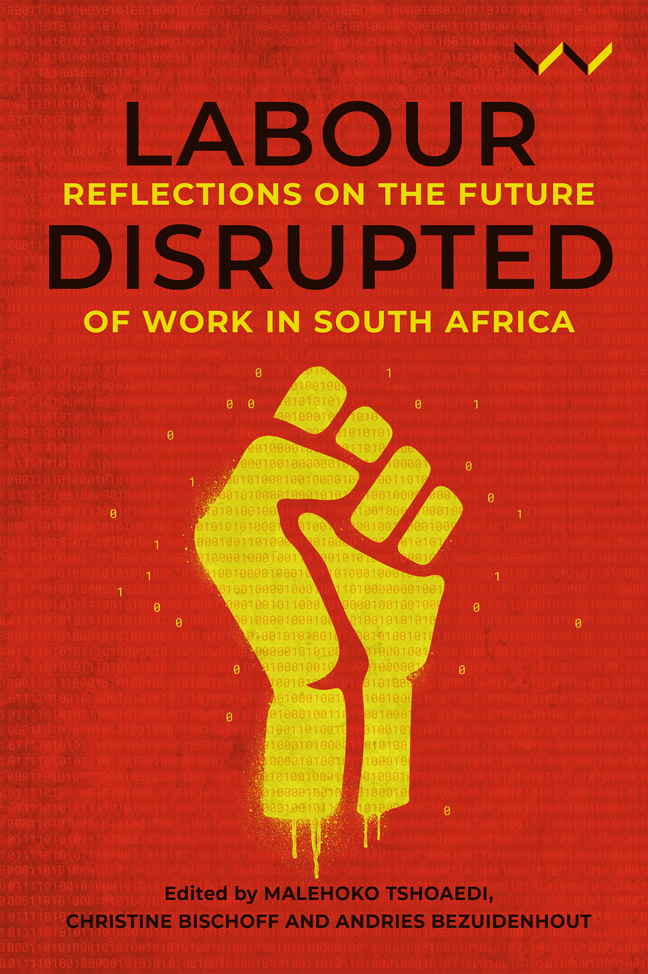Book contents
- Frontmatter
- Contents
- Figures and Tables
- Acknowledgement
- Acronyms
- Introduction: Disruptions and New Directions in South African Labour Studies
- Chapter 1 Fragmented Labour Movement, Fragmented Labour Studies: New Directions for Research and Theory
- PART I Changing Solidarities
- PART II Technology and Work
- PART III New Forms of Organising
- PART IV Labour and Lockdown
- Conclusion: Questions, Answers and New Directions
- Contributors
- Index
Chapter 14 - The Labour Movement's Response to the Covid-19 Pandemic
Published online by Cambridge University Press: 01 March 2024
- Frontmatter
- Contents
- Figures and Tables
- Acknowledgement
- Acronyms
- Introduction: Disruptions and New Directions in South African Labour Studies
- Chapter 1 Fragmented Labour Movement, Fragmented Labour Studies: New Directions for Research and Theory
- PART I Changing Solidarities
- PART II Technology and Work
- PART III New Forms of Organising
- PART IV Labour and Lockdown
- Conclusion: Questions, Answers and New Directions
- Contributors
- Index
Summary
INTRODUCTION
The severe restrictions placed on all but essential types of economic activity during South Africa's first lockdown during the Covid-19 pandemic in 2020 exposed not only the frail forms of livelihood tactics adopted by so many South Africans, but also revealed many issues that South African trade unions had not faced up to previously. Those who work in retail, as well as teachers, nurses and doctors faced the crisis head-on, delivering essential services during the Covid- 19 crisis. Workers in jobs that permitted them to work from home, such as professionals and managers, were more fortunate than others during the lockdowns. However, workers in elementary occupations and plant and machine operations, as well as those in occupations such as community, social and personal services, mineworkers, private households and manufacturing could not work remotely ( Benhura and Magejo 2021). Trade union members and their trade unions faced many challenges during the Covid-19 crisis, but even those on opposing sides of the ideological spectrum have taken the opportunity to forge working- class unity as they have found common ground to respond collectively, which is what this chapter focuses on.
THE IMPACT OF THE NATIONAL LOCKDOWN IN SOUTH AFRICA
The President of South Africa, Cyril Ramaphosa, declared a State of Disaster on 15 March 2020, and the country went into lockdown at midnight on 26 March 2020. The initial lockdown lasted 35 days at alert level five, which was the most restrictive phase. The national lockdown affected economic activity, and some people were threatened with retrenchment or lost their jobs and their income. The result was that they, together with their households, went without food. These were workers who were vulnerable to job loss as they could not work from their homes or they were in low-skill occupations, representing roughly 10.5 million workers or 63 per cent of the workforce. Workers in low-wage sectors such as hospitality and entertainment, catering, construction, the informal economy and domestic work were particularly affected by the lockdown. They had no option but to stay at home. Many did not get paid during the lockdown, or their salaries were cut.
Utilising data from the Quarterly Labour Force Surveys, it is estimated that in 2020, 26.7 per cent or 4.5 million workers in employment prior to the lockdown were employed in essential industries or occupations (Kerr and Thornton 2020).
- Type
- Chapter
- Information
- Labour DisruptedReflections on the Future of Work in South Africa, pp. 291 - 308Publisher: Wits University PressPrint publication year: 2023

